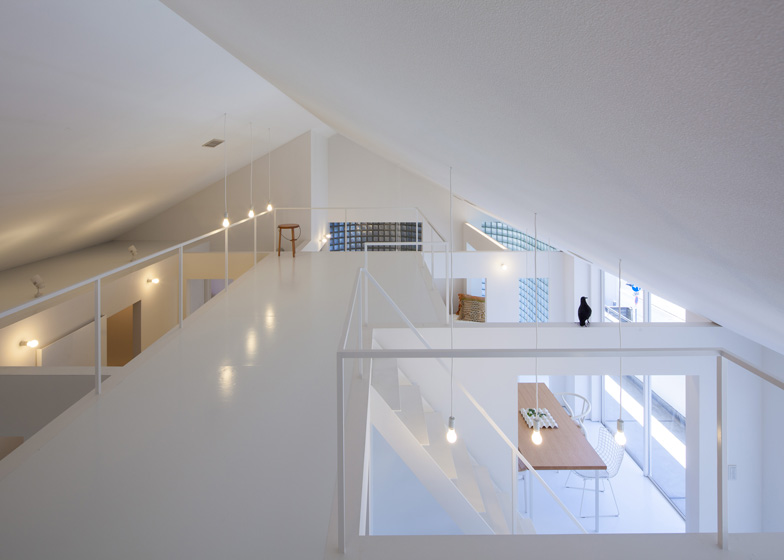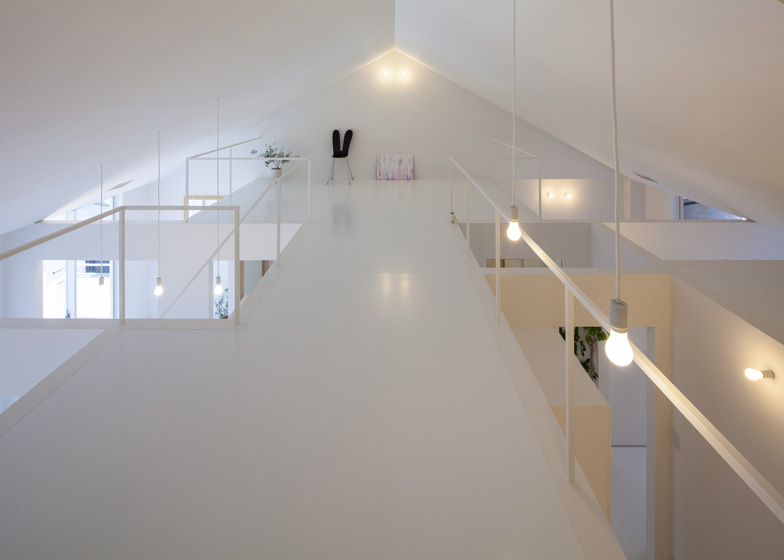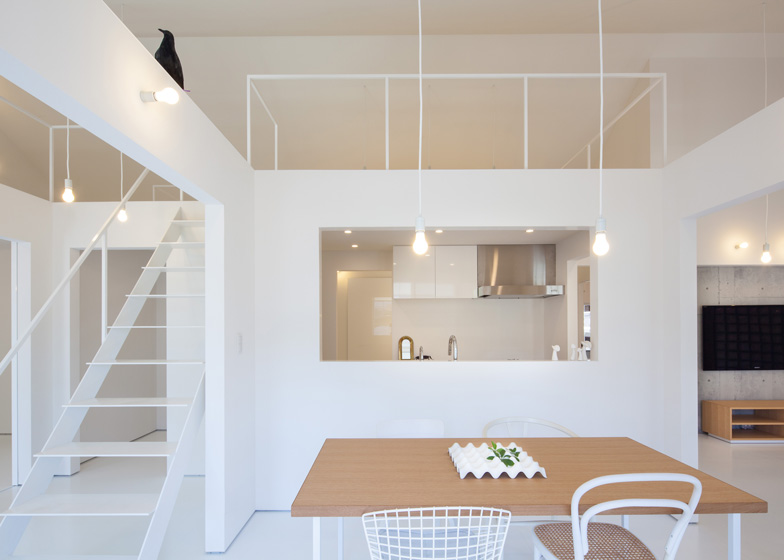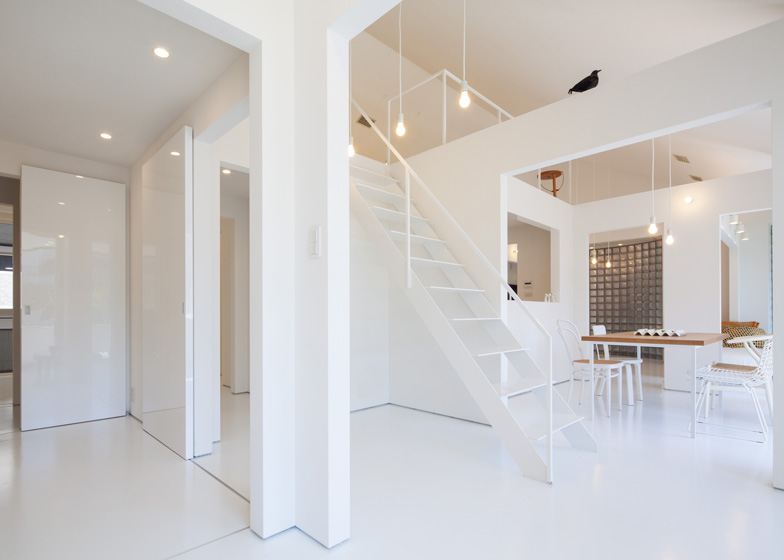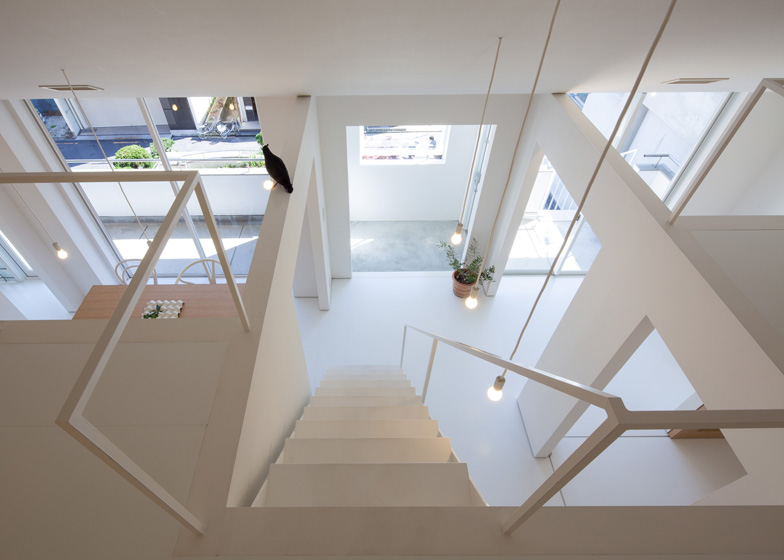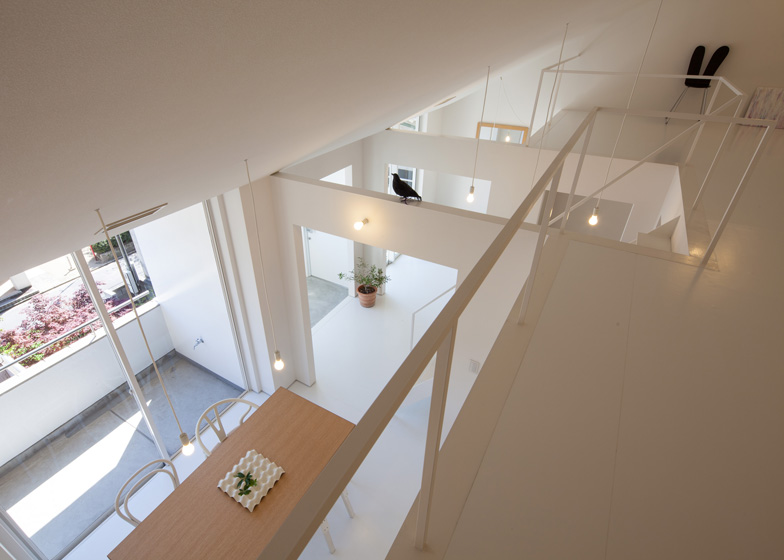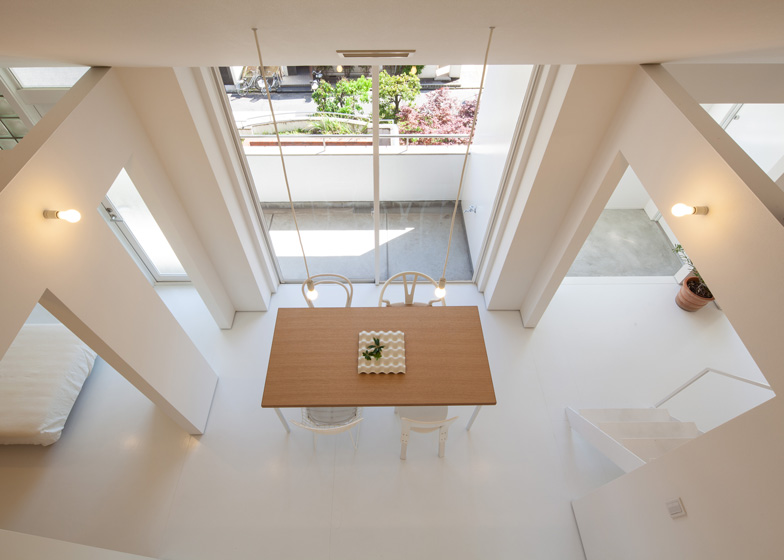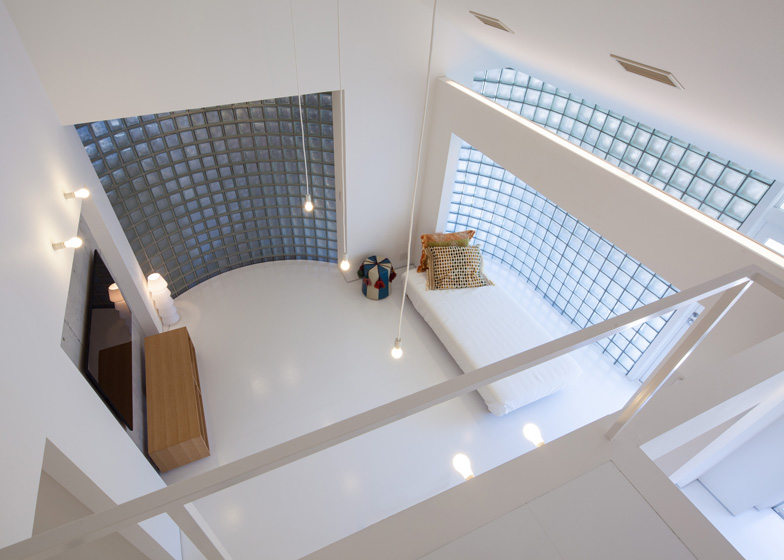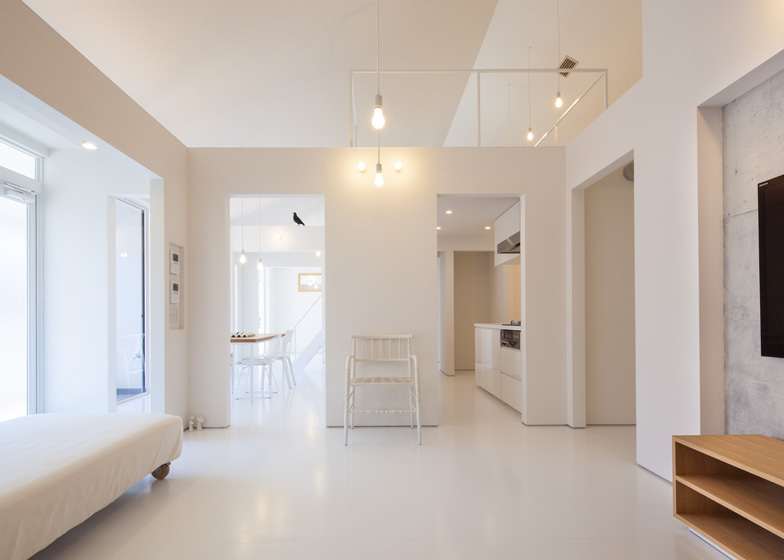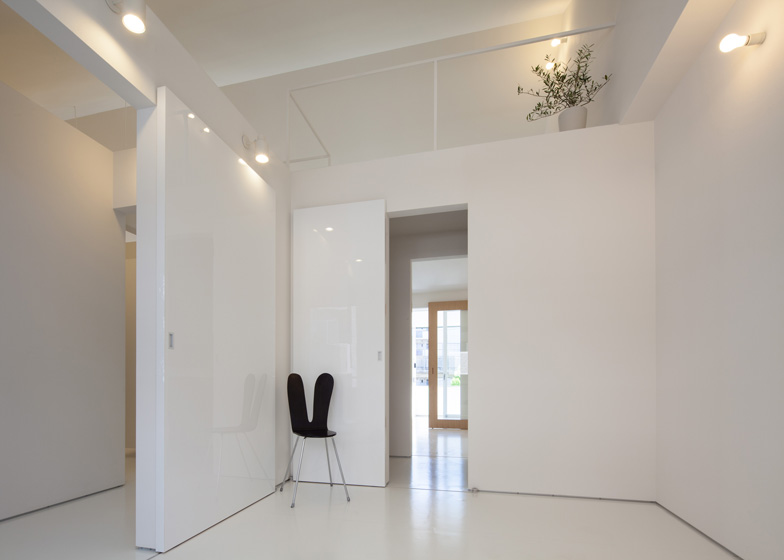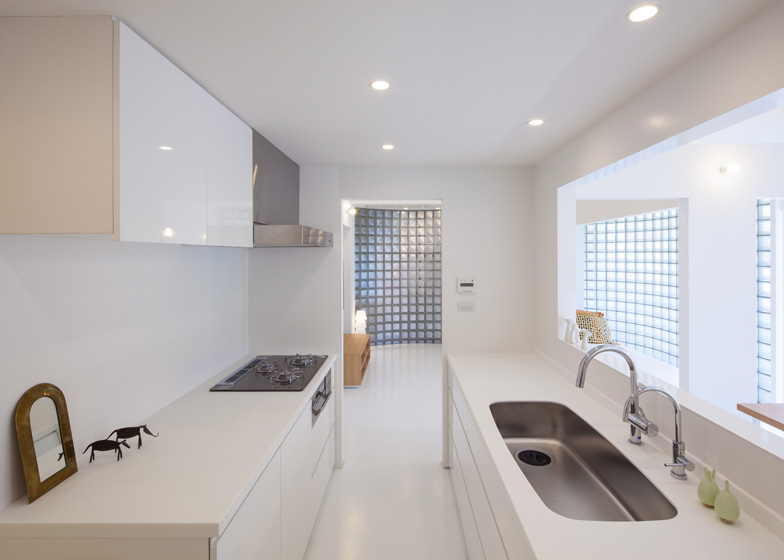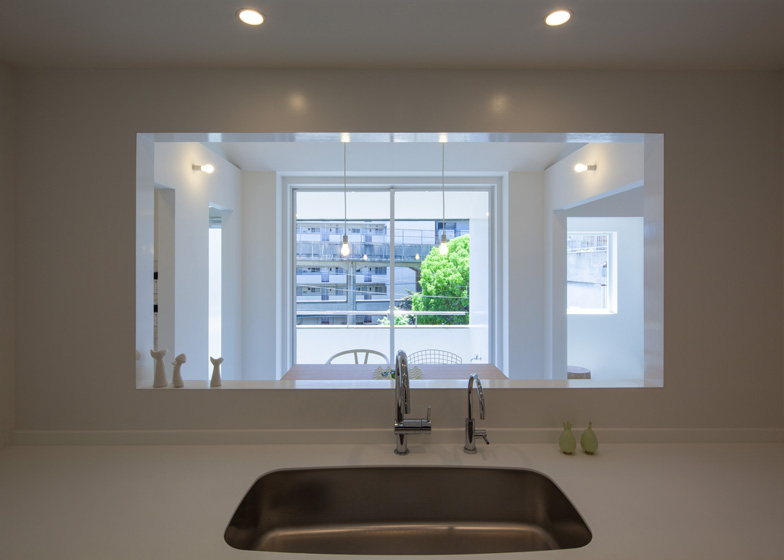This renovated family home in Japan by designer Yasunari Tsukada features large internal windows and a mezzanine loft, creating apertures and vantage points for looking into different rooms (+ slideshow).
Adapting part of a three-storey house, Yasunari Tsukada planned the interior as a grid of partitioned rooms that maintain the same clarity as an open-plan residence.
"The client requested a home where he could feel the presence of his family throughout the building, while at the same time having the calm and relaxing sensation of being in a private room," explains the designer.
The mezzanine floor runs across the centre of the space, accessed by a metal staircase near the entrance. There are no walls around it, only balustrades, so residents can look down onto any of the surrounding rooms.
Large windows and doorways also open rooms out to one another. There are a few sliding doors, so some of the spaces can be made more private when necessary.
"Each space also contains two or more windows or openings, giving rise to a multilayered space with no sense of hierarchy within it," says Tsukada.
An existing glass-block wall that previously encased a stairwell gives a curved outline to a new living room, plus a single concrete wall is the backdrop for a television.
The ceiling of the residence follow the angle of the roof. Bare lightbulbs hang down from it on long cables, while others are mounted sideways onto the walls.
Japanese designer Yasunari Tsukada more recently completed a beauty salon in Osaka with a timber lattice stretching across one wall.
Other new Japanese residences include an apartment with a sunken circular living room and an opaque house balanced above a pet shop. See more architecture in Japan.
Photography is by Stirling Elmendorf.
Here's some more information from Yasunari Tsukada:
House in Takamatsu
Our client was initially inclined to build a new house. After much consideration, however, he decided to partly renovate his three-storey family house, and use it as a residence for a two-generation family.
The client requested a home where he could feel the presence of his family throughout the building, while at the same time having the calm and relaxing sensation of being in a private room. By enveloping each room with a sloping ceiling to make use of the existing building, we wondered if we could create an ambiguously defined space that would feel as if it had been partitioned, while still maintaining a sense of coherence and unity.
The components that make up each individual room are gate-like walls, which consist mainly of openings. The roof gradient and heights of the sash windows were determined in accordance with the original height of the living room, which was 2400mm. The heights of the walls also took their cue from this figure, and were set at 2400mm. Although it seems as if this height has been deployed with excessive frequency within the space, doing away with ceilings for the individual rooms while covering them with a single, sloping ceiling and installing windows at a number of positions along the walls allowed us to create a sort of landscape that presented a very different face to the familiar surroundings. Each space also contains two or more windows or openings, giving rise to a multilayered space with no sense of hierarchy within it.
The renovation process involves thinking about how we can devise new spaces while respecting a given set of conditions imposed by the existing building, as well as the client's requirements. The glass blocks from the large staircase and stairwell were transformed into a part of the living room and the reading space, while the innocuous reinforced concrete wall that originally supported the staircase was given a new lease of life as the wall that one notices most of all on a daily basis. For our client, this space helped to give things and objects new meanings, and became invested with new stories and narratives – a process that prompted him to rethink the possibilities of design through renovation.
Project Name: House in Takamatsu
Project Type: residence renovation
Location: Takamatsu-city, Kagawa, Japan
Completion: 2012 May
Design: Yasunari Tsukada design
Contractor: Shikoku Housing

